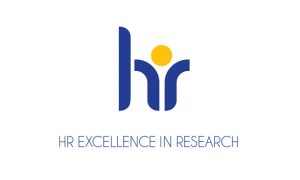The Education Quality Evaluation Unit has reported the results of the survey among academic teachers. The aim of the survey was to evaluate the implementation process of the requirements stated in the European Charter for Researchers and the Code of Conduct for the Recruitment of Researchers.
In December 2021, the Education Quality Evaluation Unit, University of Warsaw, conducted a survey to investigate the experience and opinions of academic teachers mainly regarding working conditions, gender equality and work-life balance at the UW. It was the third edition of the survey to evaluate the implementation of the principles and requirements of the European Charter for Researchers and the Code of Conduct for the Recruitment of Researchers.
The survey results were used in the gap analysis of the Charter and Code vs. the UW policy to set up the Action Plan for upcoming years.
Selected results of the survey
Working environment
- A form of appointment and access to social services were frequently described as favourable working conditions, whereas remuneration was the lowest in the opinion frame.
- The access and quality of the working environment were highly estimated by professors, but academic teachers with a Master degree gave the lowest number of points to this category.
- Most men and women working at the UW assessed their working conditions in favour of work-life balance. Yet, 32% women and 23% men disagreed with this opinion.
- Gender equality was strictly associated with the gender of academics on each stage of their career. 73% men assured the gender balance is respected while 33% women reported inequality and 41% decided the gender balance is sufficiently assured.
The role of a research supervisor
- The major part of the academic teachers declared to meet their requirements for a research supervisor, whereas 13% of the surveyed admitted to have a research supervisor.
- Qualifications and competencies of research supervisors were highly evaluated. Academic teachers, who reported to be supervising their colleagues, evaluated their qualifications really high, in general.
- Cooperation and relations with research supervisors were evaluated positively. The supervisors’ support in scientific and professional career development was crucial.
- Principles of the cooperation and relations were positive in the opinion of the majority of research supervisors. The supervisors were convinced to enhance the development of research and career of their mentees.
Recruitment
- Competencies and approach of recruitment commissions scored 3.7 on a 5-point rating scale, while the lack of possibility to compare the recruitment criteria with those applied in other units, including international universities, scored 3, which is neutral.
- Representatives of natural and exact sciences evaluated all aspects of the recruitment processes higher than representatives of the humanities and social sciences.
- The respondents indicated that both qualifications and experience corresponded to the requirements listed in job competitions (mean of 4.1 on a 5-point rating scale). Yet, they admitted their qualifications and competencies, incl. soft skills, were not fully recognised (mean value of 3.3).
- International employees at the UW admitted their full range of skills and qualifications was duly assessed by a recruitment commission (3.8 mean value vs. 3.3 mean value in Polish employees).
- 56% of the survey respondents admitted to be aware of the recruitment principles adhering to the position of doctor (PhD). These principles were known by 28% postgraduates, 48% doctors, 60% habilitation doctor (doktor habilitowany, in Polish) and 76% professors.
General principles and requirements for researchers
- Serious infringement of rules and requirements was rarely reported. The most rare cases were those referring to the violation of requirements by funders, whereas the most frequent were those of professional ethics, and health and safety procedures.
- The level of the declared knowledge of rules and regulations was relatively high, usually exceeding 4 of a 5-point rating scale. The declared awareness of the health and safety regulations was 3.9 on average.
- As the results show, the UW researchers conduct various actions to promote their area of study. Nearly half of them described promoting activities as very often or quite often.
- Upgrading didactic qualifications was more frequent in women (mean of 3.5 on a 5-point rating scale) than in men (mean of 3.2). The interest in upgrading didactic qualifications was related to the degree and title, i.e. postgraduates are more prone to upgrade their qualifications.




